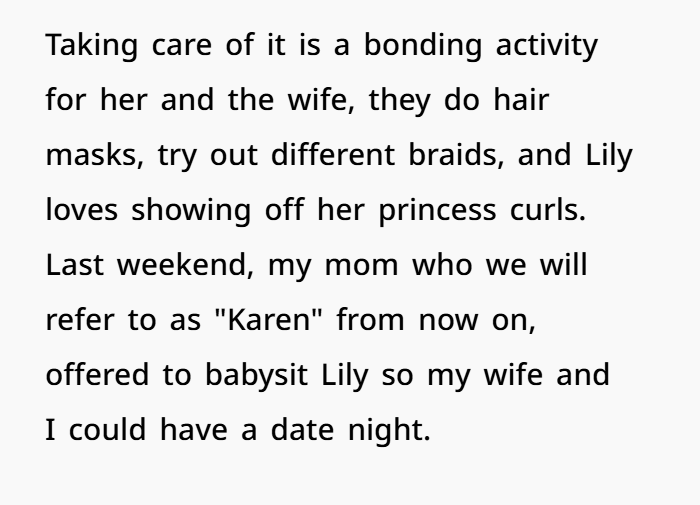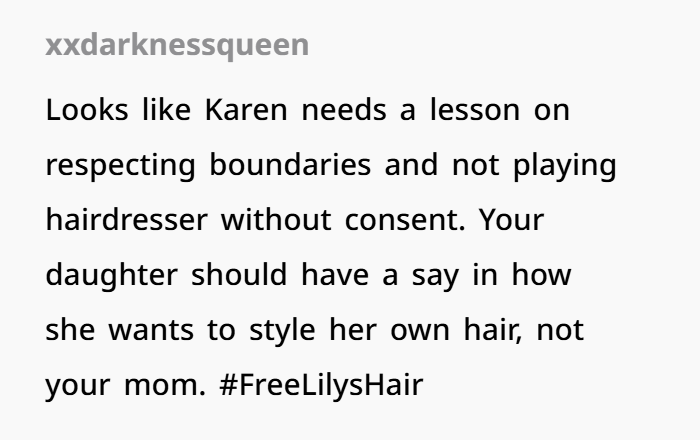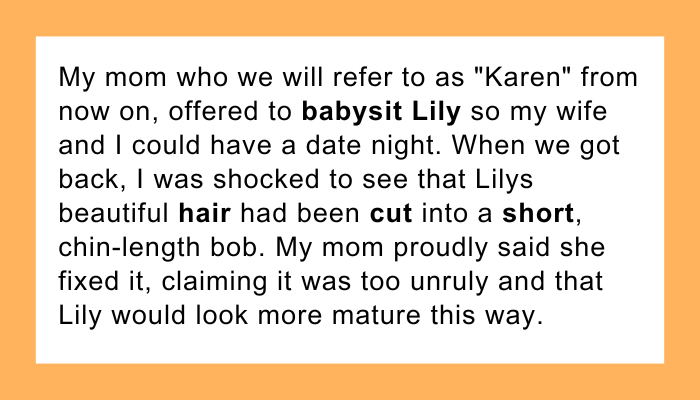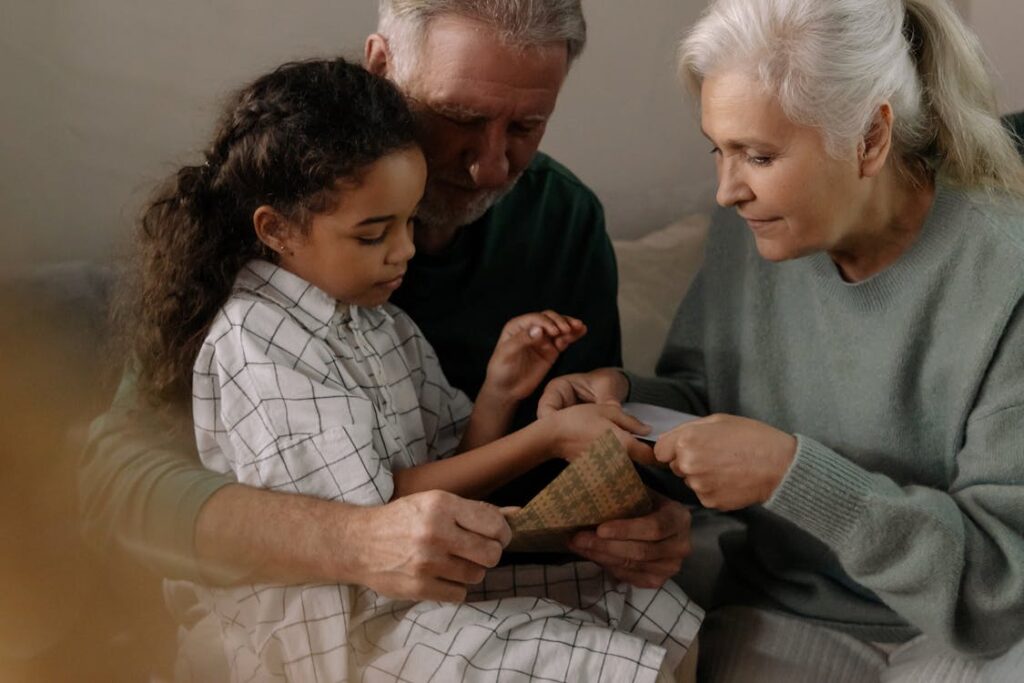MIL Loses Babysitting Privileges After Cutting Granddaughter’s Hair, People Call Her Racist
Married couples need personal time—whether it’s to run errands, enjoy a romantic date night, or simply relax without kids for a while. But when hiring a professional babysitter isn’t possible, most parents turn to family, especially grandparents, for help.
That’s exactly what one couple did. They asked the husband’s mother to watch their six-year-old daughter for the evening. But what was supposed to be a peaceful night out turned into a nightmare.
When they returned home, they were shocked to find their little girl crying uncontrollably. Her long hair had been cut without permission—by her own grandmother.
When they confronted her, the grandmother insisted she did nothing wrong. She dismissed their concerns, saying it was “just hair.” But her attitude only made things worse. The furious father made a firm decision: she’s no longer allowed to babysit.
This family drama highlights a bigger issue for many parents—childcare boundaries and the importance of trust and communication when leaving your child with someone else, even family.
Read for more info Reddit
A woman had her “grandparent rights” revoked after she cut her granddaughter’s hair
According to the young girl’s father, his mother thought she was trying to help






Grandparents are likely unaware that they are overstepping boundaries
In many families, grandparents play an important role in childcare, but sometimes they unknowingly cross boundaries. This was clear in the viral story where a grandmother cut her granddaughter’s hair without asking the parents first—believing she was helping.
According to licensed trauma specialist and certified psychotherapist Tina Chummun (via HuffPost UK), these actions usually don’t come from a place of anger or bad intentions. Instead, they are often unconscious behaviors that can become disruptive if not discussed early on.
Why Do Grandparents Overstep?
Chummun explains that some grandparents may feel unwanted, excluded, or irrelevant in their children’s lives. This can cause them to overcompensate and act in ways that make them feel useful—like making decisions about the grandchild’s appearance or behavior—without realizing they’re taking over the parent’s role.
“They assert themselves to feel needed, but it ends up crossing the line,” she says.
Another reason is the belief that experience equals authority. Psychotherapist Sandhya Bhattacharya adds in the same interview that grandparents may think, “I’ve raised kids before—I know what’s best.”
This mindset, while not always harmful, can lead to parenting conflicts and even a subtle sense of competition between generations. Grandparents might unintentionally challenge their children’s authority, leading to family tension, emotional stress, and damaged relationships.
How to Set Healthy Boundaries with Grandparents Without Creating Conflict
The father’s reaction in the story was completely understandable. After a joyful date night with his wife, he returned home to find his daughter crying—heartbroken because her grandmother had cut her hair without permission.
Yes, he had every right to set healthy family boundaries, especially when it comes to parenting decisions. However, experts say how you set those boundaries matters just as much as why.
According to the Gottman Institute, a well-respected authority in relationship counseling and conflict resolution, using a “gentle start-up” can help reduce tension. This means approaching the conversation with kindness and empathy—not anger.
Why Empathy Matters in Family Conversations
Instead of accusing grandparents or making them feel guilty, the focus should be on explaining why their actions hurt or overstepped. This approach helps prevent arguments and keeps the family bond strong.
Psychotherapist Tina Chummun emphasizes the importance of balance. While parents must be firm about who makes key decisions, it’s also crucial to make grandparents feel valued and respected.
“Framing these talks in a way that shows appreciation for the grandparent’s role—but also reinforces parenting boundaries—can avoid hurt feelings,” she explains.
What Can Be Done?
In this situation, the haircut will eventually grow back. But the emotional impact of feeling powerless or unheard—both for the child and the parents—can linger.
That’s why it’s essential to have an honest conversation. Let the grandparent know that trust in childcare must be earned and protected. At the same time, show them they’re still an important part of the child’s life—just not the one making the final decisions.
And if boundaries are crossed again, it’s okay to set clear consequences for the sake of the child’s well-being and the entire family dynamic.
The author provided more information by answering reader questions










